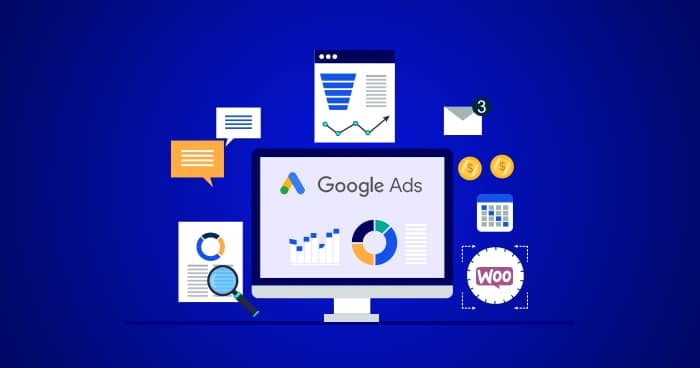The Role of SEO in Business Websites
As a business owner, you want your website to be as visible and accessible as possible to potential customers. This is where search engine optimization (SEO) comes in. SEO is the practice of optimizing your website to rank higher in search engine results and attract more qualified traffic. In this article we’ll discuss the importance of SEO for business websites and provide tips on how to implement it effectively.
What is SEO?
At its core, SEO is the practice of making changes to your website to improve its visibility and ranking in search engine results. This includes optimizing the content, structure, and technical aspects of your website to make it more attractive to search engines like Google. When a user searches for a particular term or phrase search engines use algorithms to determine which websites are the most relevant and authoritative for the query. By optimizing your website for specific keywords and phrases, you can increase the chances of it ranking higher in search results and attracting more qualified traffic.
The Benefits of SEO for Business Websites
There are several benefits to implementing SEO for your business website:
- Improved visibility in search results: By optimizing your website for relevant keywords, you can increase the chances of it ranking higher in search results and being seen by more people. This can be especially valuable for small businesses as it allows them to compete with larger companies for top search positions.
- Attraction of more qualified traffic: When your website ranks higher in search results, it attracts more qualified traffic – people who are actively searching for the products or services you offer. This means that the traffic you receive is more likely to convert into customers.
- Increased credibility and trust: Ranking higher in search results can also increase the credibility and trust of your business. When people see your website at the top of search results, they are more likely to view your business as a reliable and authoritative source in your industry.
Key Factors in SEO
There are several factors that search engines consider when ranking websites in their search results. These include:
- On-page optimization: On-page optimization refers to the elements on your website that you can control and optimize, such as the content, titles and meta descriptions. By including relevant keywords and providing valuable and informative content, you can improve your website’s on-page optimization.
- Off-page optimization: Off-page optimization refers to the elements outside of your website that can impact your ranking such as the number and quality of backlinks (links from other websites to your website) and your social media presence. By building high-quality backlinks and actively engaging on social media, you can improve your off-page optimization.
- Mobile-friendliness: With more and more people accessing the internet from their smartphones and tablets, it’s important to make sure your website is mobile-friendly. This means that it should be easy to read and navigate on a small screen and should adjust to fit different device sizes.
- Page loading speed: The faster your website loads, the better. Search engines consider page loading speed when ranking websites, as it is a factor in the user experience. By optimizing your website’s images, code, and server response time, you can improve its loading speed.
Best Practices for SEO
To get started with SEO for your business website, consider the following best practices:
- Conduct keyword research: Identify the keywords and phrases that are most relevant to your business and that your target audience is searching for. There are several tools, such as Google’s Keyword Planner, that can help you with this.
- Create high-quality relevant content: Once you’ve identified the relevant keywords for your business, it’s important to create high-quality relevant content that incorporates those keywords. This means providing valuable and informative content that addresses the needs and interests of your target audience. By creating high-quality content, you can improve your website’s relevance and authority in the eyes of search engines.
- Optimize your website structure and navigation: A clear and logical website structure and navigation can make it easier for search engines to crawl and index your website, which can improve your ranking. Use clear headings, subheadings and navigation links to guide visitors through your website and make it easy for them to find what they are looking for.
- Utilize header tags and alt tags for images: Header tags (H1, H2, etc.) and alt tags are ways to describe the content of your website and images to search engines. By including relevant keywords in your header tags and alt tags, you can improve your website’s SEO.
- Create a sitemap and use clean URLs: A sitemap is a list of the pages on your website that helps search engines crawl and index your content. Using clean URLs, which are easy to read and understand, can also help improve your website’s SEO.
The Importance of Ongoing SEO Efforts
SEO is not a one-time effort – it’s an ongoing process that requires regular attention and maintenance. This means tracking and analyzing your website’s performance, including the traffic it receives and the keywords it ranks for and making adjustments as needed. It also means regularly creating and updating your content to keep it fresh and relevant. By maintaining and improving your website’s SEO, you can continue to attract qualified traffic and improve your search engine rankings over time.
In conclusion, the role of SEO in business websites is crucial for improving visibility in search results, attracting qualified traffic and increasing credibility and trust. By implementing the best practices outlined in this article you can improve your website’s SEO and get the most out of your online presence.Regenerate response
Here are some good websites that discuss the importance of search engine optimization (SEO) for business websites:
- https://www.searchenginejournal.com/why-seo-is-important-for-businesses/381187/
- https://www.seo.com/blog/why-seo-is-important-for-small-businesses/
- https://www.business2community.com/digital-marketing/why-seo-is-important-for-business-growth-02142987
- https://www.forbes.com/sites/forbesbusinesscouncil/2021/01/12/why-seo-is-important-for-small-businesses-in-2021/?sh=734a9d9726f7
- https://www.entrepreneur.com/article/338468







